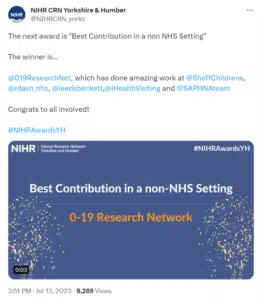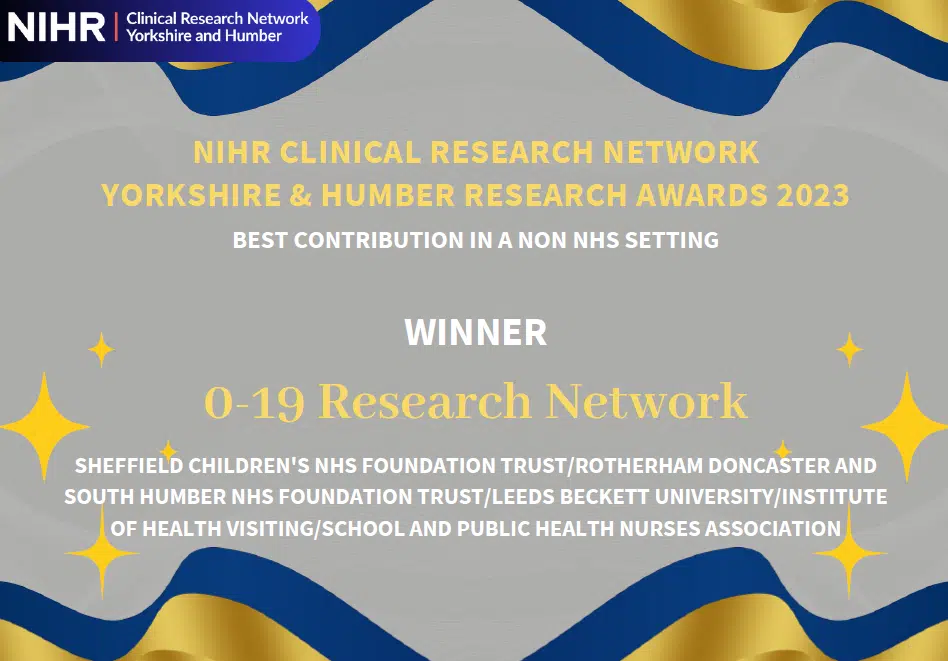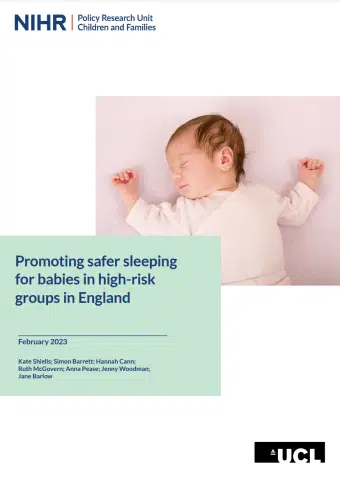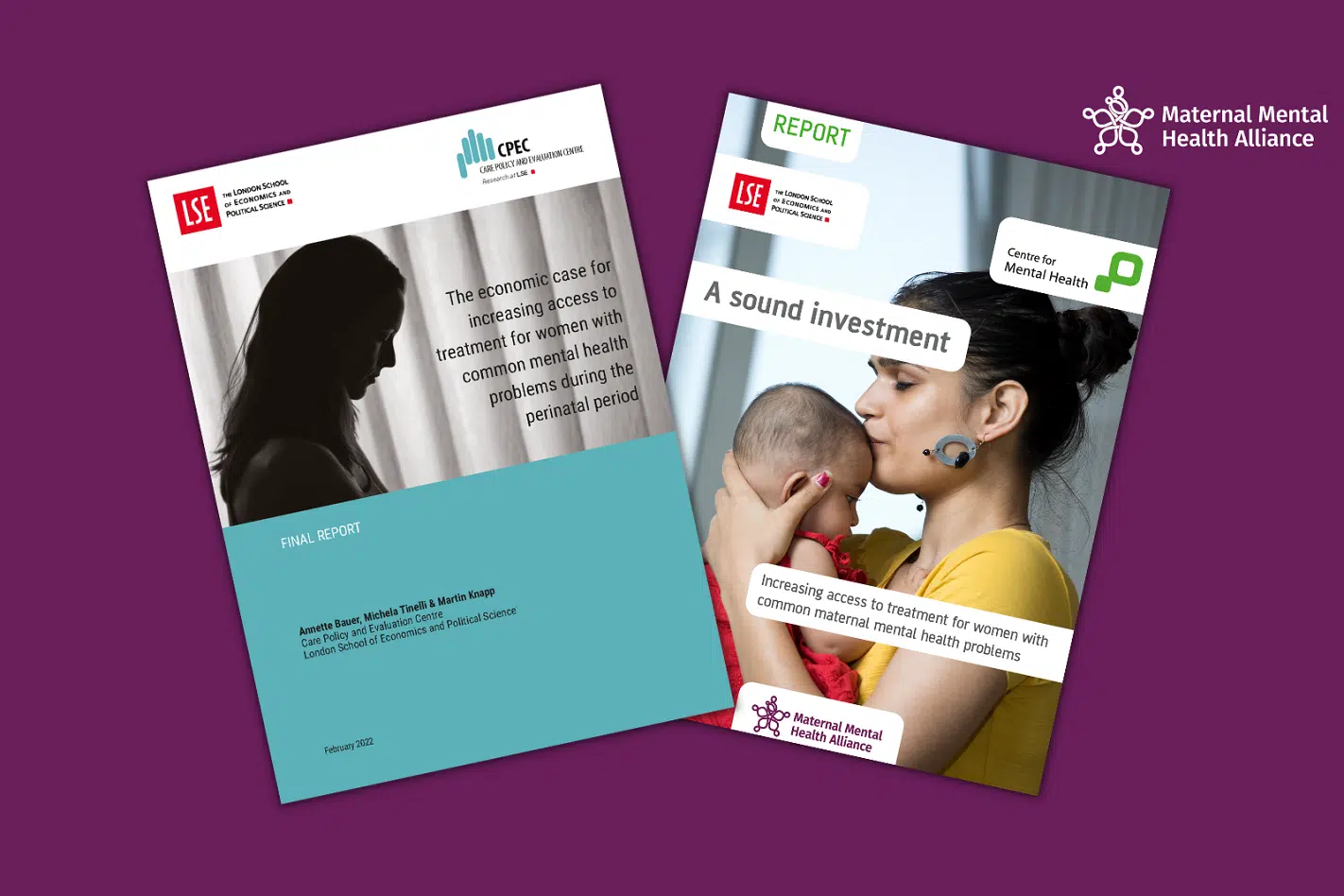iHV is delighted to announce that the 0-19 Yorkshire and Humber Community of Research Practice (CRN) has won this year’s NIHR CRN Yorkshire and Humber Research Award for “Best Contribution in a non-NHS Setting”.
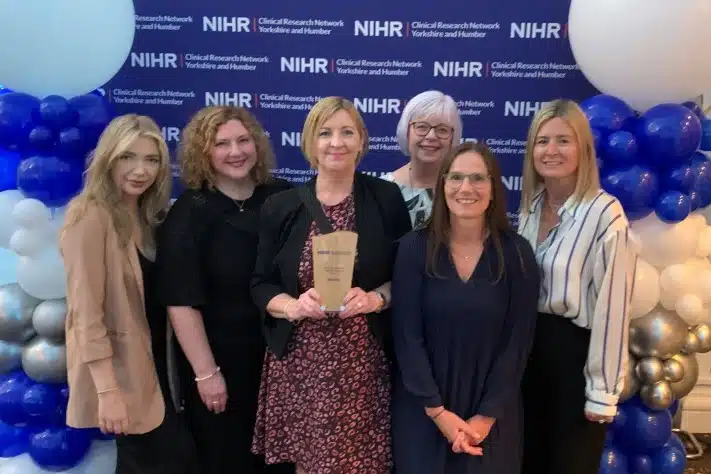
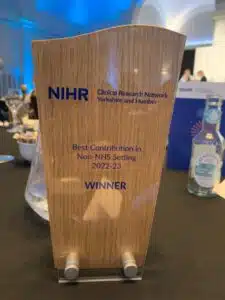
The iHV has been collaborating on this exciting project with the 0-19 Yorks and Humber CRN since 2020. The project aims to support and increase participation in research, as well as increasing research engagement and capacity. This project builds on the work of the 0-19 Yorks and Humber CRN, which was first established in 2013. With funding and support from NIHR CRN Yorkshire and Humber, the team has been able to develop 0-19 Research Champion roles alongside providing a programme of networking events to support new and aspiring researchers. The project is led by the inspirational Louise Wolstenholme who is the 0-19 Lead for Research (Education & Development) & Health Visitor at Sheffield Children’s NHS Foundation Trust and programme management support is provided by Victoria Jackson, Senior Programme Manager at the iHV. Other partners include the School And Public Health Nurses Association (SAPHNA), Rotherham Doncaster and South Humber NHS Foundation Trust (RDaSH), Humber Teaching NHS Foundation Trust, and Leeds Beckett University.
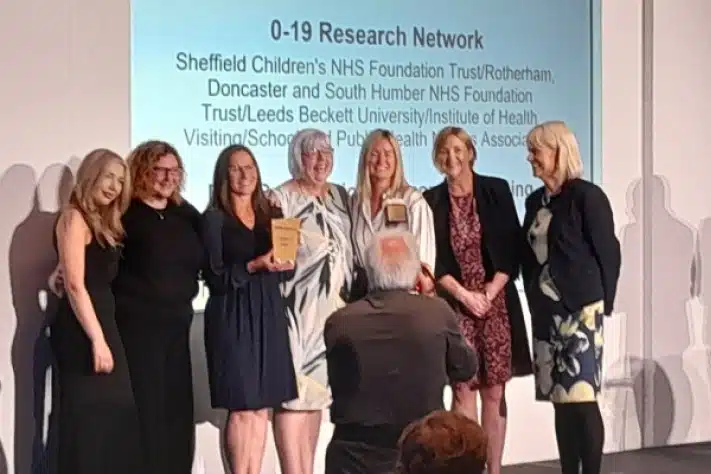
This well-deserved award is a reflection of the hard work, commitment and expertise of all those involved in the project today, as well as those who were involved in establishing the CRN from the start.
If we are serious about improving the health of babies, children, young people and their families – and reducing ever widening health inequalities – we need to transform services using the best available evidence of ‘what works’. This requires more 0-19 research! The CRN is leading the way and inspiring new researchers to embark on exciting careers in research. As a lead partner, we are proud that the project has been recognised for its success in building research capacity in the 0-19 workforce.
Louise Wolstenholme responded to the award:
“Attending the CRN Awards ceremony and hearing that we had won the category for best research contribution in a Non-NHS setting was really exciting. All the project team have been very committed in ensuring the success of the 0-19 Research Network in Yorkshire and Humber and it feels exceptionally rewarding to be recognised in this way. Success would not have been possible without the valuable contributions from all the organisations involved, it really has been a joint venture. The trophy will be well travelled by the time it has visited all the partners across the region and wider! Importantly, we hope that this acknowledgement continues to place emphasis on the importance of researching the needs and informing care delivery for babies, children, young people and their families.”
In other news, the 0-19 Yorks and Humber CRN and project team has also been shortlisted for the Nursing Times Awards which takes place in the winter, so watch this space.
Huge congratulations to everyone involved – these achievements are fabulous recognition for all your hard work!

